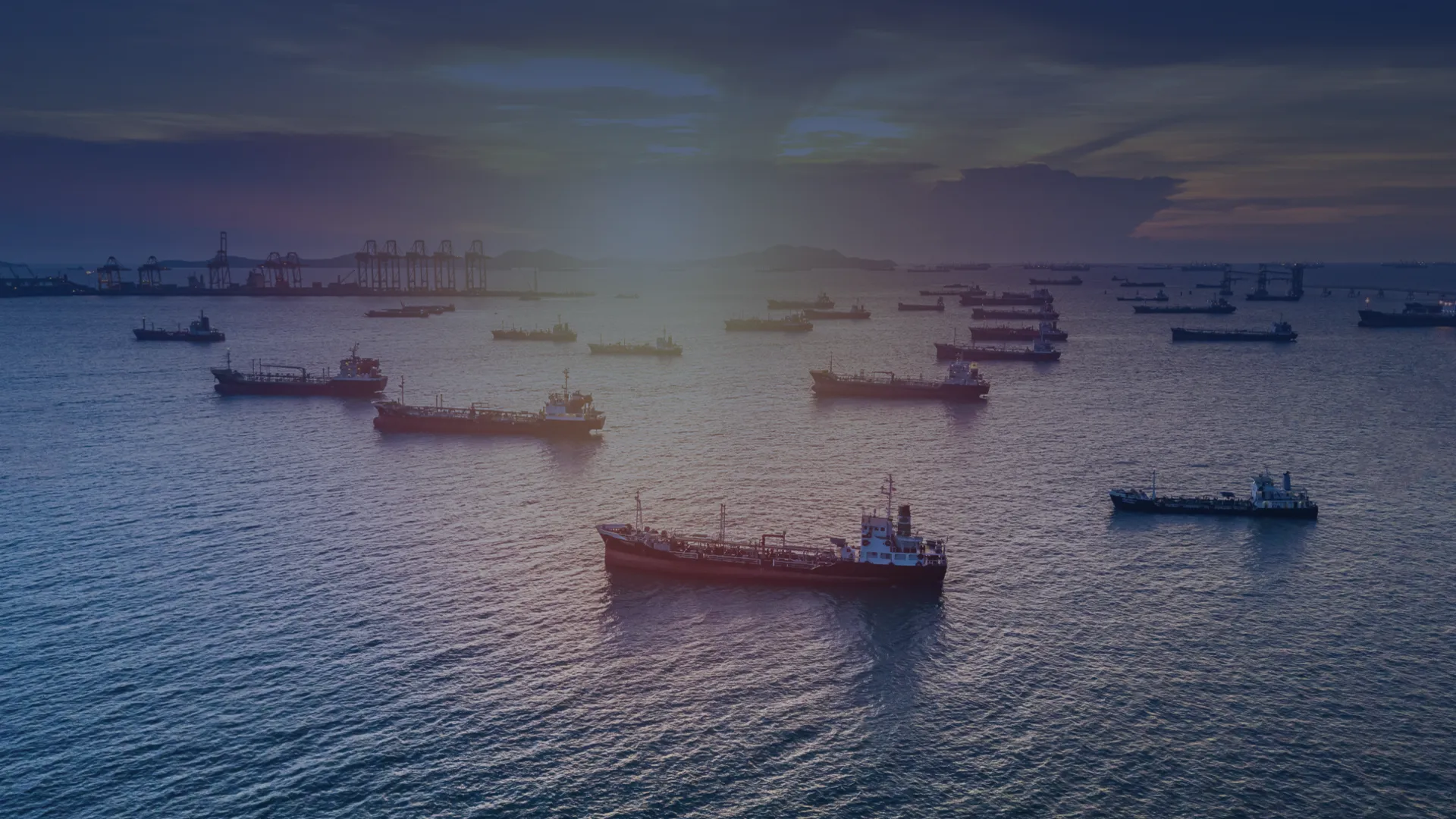
ESG Reporting for Shipping
In the shipping industry, companies are required to publish comprehensive reports on their performance in terms of sustainability, social responsibility, and governance. This reporting is known as ESG reporting (Environmental, Social, and Governance). Creating these reports is crucial for promoting transparency regarding sustainability and for complying with regulations such as the Corporate Sustainability Reporting Directive (CSRD), which came into effect on January 5, 2023. This directive gradually introduces the obligation for ESG reporting. Discover our partner’s ESG reporting platform, specially developed for the shipping industry. This application simplifies ESG reporting and automatically collects essential data on the direct greenhouse gas emissions from your shipping facilities (Scope 1), indirect emissions from your energy usage (Scope 2), and emissions throughout your value chain (Scope 3).

ESG Reporting for Shipping
Discover our partner’s ESG reporting platform, specifically developed for the shipping industry.

Automatic Data Collection
By collecting data, support can be provided in preparing comprehensive ESG reporting. The data collection module provides automatic access to data from your ship, such as CO2 emissions, distances traveled, and travel time. It can also gather information from other company components, such as buildings and company vehicles. Furthermore, data can be obtained from other links within your value chain, such as power plants that supply energy to your company, and business and commuting trips of your staff.
ESG Reporting Simplified
To facilitate the creation of your ESG report, the templates adhere to current standards within the shipping sector. These templates are highly customizable with essential information such as text, tables, charts, and documents, and are regularly updated according to the latest laws and regulations. With these templates, you can effortlessly generate a PDF version of your ESG report, making it easy to share with your stakeholders.
ESG-Compliant
To become ESG-compliant, it is crucial to decide which sustainability reporting standard you will adopt. The ESG reporting platform complies with all existing and future regulations, including the NFRD (Non-Financial Reporting Directive), the CSRD (Corporate Sustainability Reporting Directive), including the EU Taxonomy, ESRS (European Sustainability Reporting Standards), GRI (Global Reporting Initiative), and ISSB (International Sustainability Standards Board).
ESG Factors
In the maritime industry, ESG factors play a crucial role in sustainability, social responsibility, and good governance. Regarding the environment, they encompass emissions, energy consumption, biodiversity, marine pollution, ship recycling, prevention and preparation for accidental emissions, and climate risk. Social aspects focus on Occupational Health, Safety, and the Environment (HSE), workers’ rights, diversity, and equality. In terms of governance, they cover issues such as anti-corruption, responsible management, tax reporting, and transparency.
Life Cycle Assessment
A Life Cycle Assessment (LCA) is a valuable tool that enhances your ESG performance. It not only maps your direct and indirect emissions (scope 1 and 2), but also the indirect emissions in your value chain (scope 3). This enables you to achieve measurable efficiency improvements, which can then be documented in your ESG reporting. This amplifies your transparency and accountability towards your stakeholders.
Automatic Data Collection
By collecting data, support can be provided in preparing comprehensive ESG reporting.
The data collection module provides automatic access to data from your ship, such as CO2 emissions, distances traveled, and travel time.
It can also gather information from other company components, such as buildings and company vehicles.
Furthermore, data can be obtained from other links within your value chain, such as power plants that supply energy to your company, and business and commuting trips of your staff.
ESG Reporting Simplified
To facilitate the creation of your ESG report, the templates adhere to current standards within the shipping sector. These templates are highly customizable with essential information such as text, tables, charts, and documents, and are regularly updated according to the latest laws and regulations. With these templates, you can effortlessly generate a PDF version of your ESG report, making it easy to share with your stakeholders.
ESG-Compliant
The ESG reporting platform complies with all existing and future regulations, including the NFRD, the CSRD, including the EU Taxonomy, ESRS, GRI, and ISSB.
ESG Factors
In the maritime industry, ESG factors play a crucial role in sustainability, social responsibility, and good governance. Regarding the environment, they encompass emissions, energy consumption, biodiversity, marine pollution, ship recycling, prevention and preparation for accidental emissions, and climate risk. Social aspects focus on Occupational Health, Safety, and the Environment (HSE), workers’ rights, diversity, and equality. In terms of governance, they cover issues such as anti-corruption, responsible management, tax reporting, and transparency.
Life Cycle Assessment
A Life Cycle Assessment (LCA) is a valuable tool that enhances your ESG performance. It not only maps your direct and indirect emissions (scope 1 and 2), but also the indirect emissions in your value chain (scope 3). This enables you to achieve measurable efficiency improvements, which can then be documented in your ESG reporting. This amplifies your transparency and accountability towards your stakeholders.
Frequently Asked Questions
What are the benefits of ESG reporting for the shipping industry?
Cost savings: While sustainability initiatives involve investment costs, gaining (better) insights into aspects such as energy consumption provides the opportunity to discover potential savings.
Improved preparation for future environmental regulations: The CO2 tax is a prime example. Since January 1, 2024, shipping has been included in the European Union Emissions Trading System (EU ETS). This means that companies with ships of 5000 Gross Tonnage or more must pay for their emissions of CO2 and other greenhouse gases from that date onwards. By knowing the CO2 footprint of your fleet, you may be able to limit the impact of this pricing on your organization through ESG reporting.
Attracting more investors: This is because investors increasingly value sustainability and Corporate Social Responsibility (CSR) in their investment decisions. By reporting ESG data and providing insight into your company’s sustainability performance and future plans, you increase the chance of investors being interested in collaborating with you.
Boosting your company’s image: ESG reporting helps your company be less vulnerable to negative publicity. By clearly communicating about your sustainability performance, you demonstrate responsibility and commitment to broader societal interests. Moreover, this transparency makes you more attractive to customers who value sustainability and to potential employees who want to work for a company that has a positive impact.
Which direct and indirect technologies can shipping companies leverage to minimize ESG impact?
Technologies for shipping that could directly minimize your ESG impact include, for example, wind-assisted propulsion systems, Energy Saving Devices (ESDs), air lubrication, fuel cell technology, and battery storage. Additionally, data analysis, artificial intelligence, and the Internet of Things (IoT) can be employed to optimize sailing routes, reduce fuel consumption, and better predict maintenance.
Looking at marine technologies that indirectly contribute to broader ESG goals, you can consider an exhaust gas aftertreatment system such as a Selective Catalytic Reduction (SCR) catalyst and a Diesel Particulate Filter (DPF). These systems reduce the emissions of nitrogen oxides (NOx) and particulate matter (PM) to the level of EU Stage V. This contributes to reducing local air pollution and improving air quality, which has a positive impact on both crew health and surrounding communities near ports.
